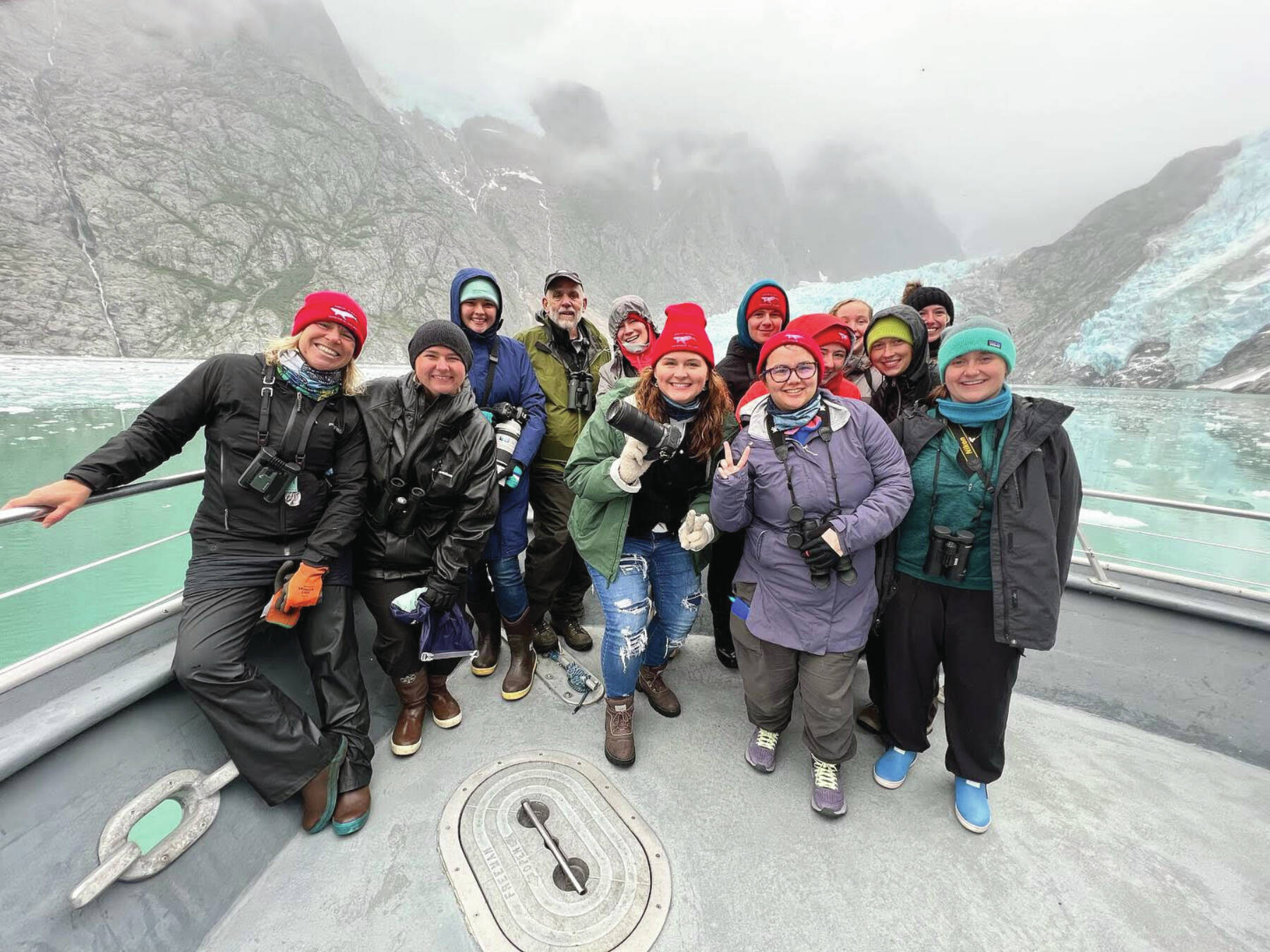Students participating in the Kachemak Bay Campus Semester by the Bay will provide presentations Friday, Nov. 3, at the 2023 Marine Mammal Symposium.
Presentations will include topics related to marine biology and marine mammals from international locations and the students will also present posters highlighting field study and survey trips to Kenai Fjords National Park, Kachemak Bay, Flat Island in the Cook Inlet, and beluga whale monitoring on the Kenai River and Turnagain Arm.
This event provides an opportunity for students to experience conducting presentations and field questions about their work, and for the public to learn about trends witnessed in general marine biology as well as details specific to Kachemak Bay, according to Debbie Tobin, professor of biology at the Kachemak Bay Campus and one of the lead professors for the Semester by the Bay program.
Semester by the Bay was started at the Homer campus approximately 15 years ago. The fall program offers visiting students an opportunity to take classes in topics such as marine biology, mammal biology and marine mammal skeletal articulation. Spring semester of the program focuses on environmental conservation.
Madison Thornhill, a student at the University of South Alabama in Mobile, said she found out about the program via Instagram.
Originally from Cowan, Tennessee, Thornhill studies biology with a concentration in marine sciences and a minor in psychology. Her presentation will be related to the reproductive biology of North Atlantic right whales.
“I chose this because right whales are critically endangered and so understanding their reproduction gives us some insight on future population statistics,” she said.
She has a colleague working on the topic in Washington, D.C., because right whales are impacted by collision from vessels in shipping channels in the region, particularly in the Gulf of Maine, as a high cause of death. Entanglement in lobster pots in Maine is also a major issue.
Maya Silver from Bloomington, Minnesota, is working on a degree in biology and race and ethnic studies at St. Olaf College. Silver is engaged with the program through a national student exchange program with a reciprocity through her university.
She said the focus of her presentation at the event is related to sirenian facial morphology. Sirenia, commonly known as sea cows, are dugongs or manatees from various regions in the world, primarily near the coast of Florida.
Her presentation will focus on the features of their face, such as whisker structures, that contribute to adaptation and composition of diet, which is primarily sea grass.
“These are the only mammals that can move their whiskers, functionally, with muscles. Most other mammals just use this feature as a tactile response,” Silver said.
Bella Felts from Nashville, comes from Coastal Carolina University, and will provide a presentation related to the inbreeding of southern resident killer whales. These whales can range from central California to Southeast Alaska but are mostly based in Washington and Oregon waters, she said.
Charlie Uptegrove grew up in a military family and has lived in Japan and California prior to the experience in Alaska. Her presentation will focus on biology of baleen whales, organ sensory and bones.
Ashten Groves is also from Nashville and goes to school in North Carolina, studying marine science. Her presentation will be related to hybridization of delphinids, southern and northern right whale dolphins and species captivity in the wild.
Thornhill, a senior undergraduate, said the Semester by the Bay program is an excellent resource for students interested in continuing education from an undergraduate degree and who are looking into master’s and PhD programs.
“This program has definitely given me the confidence to continue my education. The program has provided a lot of support.”
The Marine Mammal Symposium is free and open to the public and will take place Friday, Oct. 3, in the Kachemak Bay Campus Pioneer Hall. Oral presentations will take place from noon to 4 p.m. and the poster session will be from 5 p.m. to 7 p.m.


